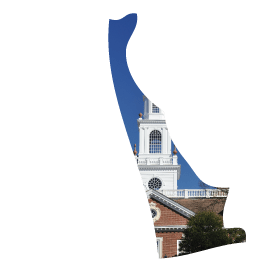Secondary Teacher Preparation in Science:
Delaware
Delivering Well Prepared Teachers Policy
Analysis of Delaware's policies
Delaware issues a secondary certificate for integrated science. Candidates must earn a major or its equivalent in any science discipline or related field. They must also pass the Praxis II "General Science" test. Teachers with this license are not limited to teaching general science but rather can teach any of the topical areas.
The state also offers a secondary certificate for physical science, which requires a major in physics, chemistry, astronomy, space science, engineering or a related field. These candidates must pass the Praxis II "Physical Science" test.
Middle school science teachers in Delaware are required to have a middle-level science teacher certificate. Commendably, candidates must pass the Praxis II "Middle School Science" test.
Recommendations for Delaware
Require secondary science teachers to pass tests of content knowledge for each science discipline they intend to teach.
States that allow general science certifications or combination licenses across multiple science disciplines—and only require a general knowledge science exam—are not ensuring that these secondary teachers possess adequate subject-specific content knowledge. Delaware's required assessments combine subject areas (e.g., chemistry and physics) and do not report separate scores for each subject area. Therefore, candidates could answer many—perhaps all—chemistry questions, for example, incorrectly, yet still be licensed to teach chemistry to high school students.
State response to our analysis
Delaware asserted that the statement that teachers with general science licenses are not limited to teaching general science has only recently been made state policy. It is currently under review by the Professional Standards Board.
Select another topic
Delivering Well Prepared Teachers
- Admission into Preparation Programs
- Elementary Teacher Preparation
- Elementary Teacher Preparation in Reading Instruction
- Elementary Teacher Preparation in Mathematics
- Middle School Teacher Preparation
- Secondary Teacher Preparation
- Secondary Teacher Preparation in Science
- Secondary Teacher Preparation in Social Studies
- Special Education Teacher Preparation
- Assessing Professional Knowledge
- Student Teaching
- Teacher Preparation Program Accountability
Expanding the Pool of Teachers
Identifying Effective Teachers
- State Data Systems
- Evaluation of Effectiveness
- Frequency of Evaluations
- Tenure
- Licensure Advancement
- Equitable Distribution

